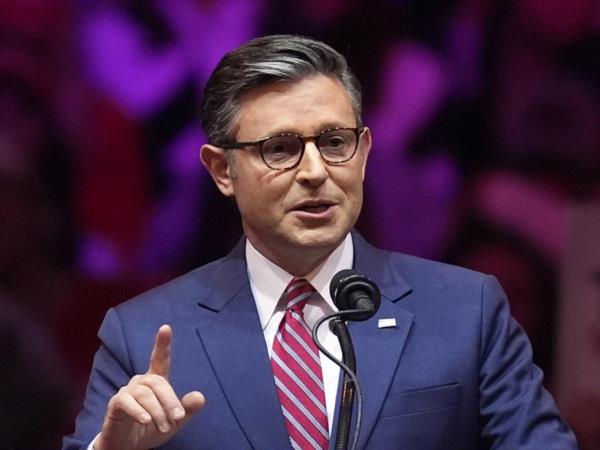
In the upcoming Congress, Speaker Mike Johnson will confront a significant hurdle due to the narrowest House majority in nearly a century. With Republicans set to control the House, Senate, and White House, the slim margins could jeopardize President-elect Donald Trump's agenda. The House majority stands at 220 Republicans to 215 Democrats, the closest division since the Great Depression.
However, this margin is expected to shrink further, with the GOP majority likely to decrease to 217 due to vacancies. Passing legislation in the House requires a minimum of 218 votes, making every vote crucial. Any defection could hinder the party's ability to pass bills along party lines.
Historically, the last time a minority in the House held 215 or more seats was during the 1930 elections, reflecting the current delicate balance of power. The upcoming speaker election will be a critical test for Johnson, who needs to secure a majority vote to retain his position.



Despite President-elect Trump's endorsement of Johnson, some Republicans, like Rep. Thomas Massie of Kentucky, have expressed opposition. Massie's stance underscores the challenges Johnson faces in maintaining party unity.
With vacancies expected to be filled through special elections, the House majority could see further shifts in the coming months. The dynamics within the GOP caucus will play a crucial role in shaping the legislative agenda and determining the success of Trump's initiatives.







